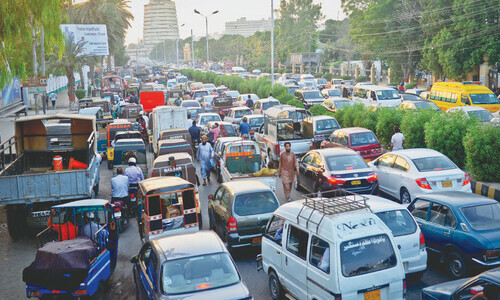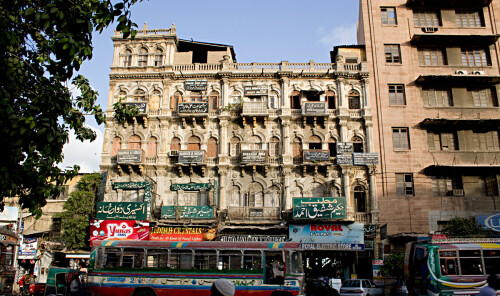KARACHI: The country’s consumption of commercial airline fuel (JP-1) stood at 381,492 tonnes during July-December 2015-16, with almost three quarters of it used by Sindh alone.
Punjab’s consumption, at 81,110 tonnes, was well below Sindh’s usage of 297,061 tonnes, apparently because people in the country’s most-populated province ditch air travel in favour of public and private transport.
An official of the Oil Companies Advisory Council (OCAC) said the Punjab’s jet-fuel consumption has been fluctuating since 2005-06, when it touched a record high of 588,000 tonnes. It stood at 145,167 tonnes during the preceding fiscal year.
In contrast, Sindh’s consumption came in at 531,152 tonnes during the previous fiscal year, less than half of 1.136 million tonnes recorded in 2010-11.
During July-December FY16, combined consumption in Khyber Pakhtunkhwa and Balochistan was around 3,500 tonnes.
The country’s total usage of JP-1, which hit the highest level of 1.34m tonnes in 2010-11, stood at 686,402 tonnes in 2014-15.
In other petroleum products like petrol (motor gasoline), high-speed diesel (HSD), kerosene and furnace oil (FO), Punjab holds a 50-70 per cent market share in terms of consumption as compared to other provinces.
PETROL: Of the country’s total output of 2.753m tonnes during July-December FY16, Punjab consumed 1.9m tonnes. Around 4.7m tonnes of petrol were used during FY15, in which the share of Punjab was 3.3m tonnes, followed by 943,845 tonnes by Sindh, 285,499 tonnes by KP and 110,115 tonnes by Balochistan.
HSD: During July-December FY16, the country consumed 3.6m tonnes of the fuel, with Punjab’s share being 2.3m tonnes, Sindh 781,655 tonnes, KP 355,216 tonnes and Balochistan 92,552 tonnes. Azad Kashmir used 63,428 tonnes while consumption in Federally Administered Tribal Areas (Fata) and Gilgit-Baltistan was 28,742 and 25,504 tonnes, respectively.
In FY15, country’s diesel consumption was recorded at 7.4m tonnes, in which Punjab used 4.82m tonnes, followed by 1.47m tonnes by Sindh, 676,391 tonnes by KP, 205,207 tonnes by Balochistan, 46,928 tonnes by Gilgit-Baltistan, 129,241 tonnes by Azad Kashmir and 61,211 tonnes by Fata.
FURNACE OIL: Of an overall consumption of 4.2m tonnes during the half-year under review, Punjab enjoyed a share of 2.5m tonnes, Sindh 757,967 tonnes, KP 17,246 tonnes and Balochistan 933,715 tonnes.
The country’s total furnace oil consumption was 9.26m tonnes in the preceding fiscal year, in which the share of Punjab and Sindh was 5.2m and 2.4m tonnes, followed by Balochistan’s 1.66m tonnes and KP’s 14,857 tonnes.
KEROSENE: The country consumed 84,805 tonnes in July-December FY16, of which 57,114 tonnes were used in Punjab, 8,313 in Sindh, 16,072 in KP and 394 in Balochistan. The usage of kerosene in the country stood at 174,555 tonnes in FY15.
An OCAC official said kerosene’s monthly production during the period 2008-2015 has averaged at 13,000-14,000 tonnes.
He said people not part of the organised petroleum sector resort to creating shortage kerosene or selling it to the paint industry where mineral turpentine, and not kerosene, should be used.
Moreover, he said the price of jet fuel was always higher than kerosene due to special processing and expensive imported additives. He said it was impossible for refiners to resort to mixing and suffer loss.
The official said Euro-II diesel has been available on the local market since 2012, while Euro-II gasoline availability started from July 2015. Additional volumes of both Euro-II products would be available within two months.
Refineries have spent $1 billion on upgrading their facilities to reach this level, he added.
Published in Dawn, May 1st, 2016













































Dear visitor, the comments section is undergoing an overhaul and will return soon.